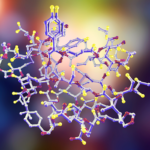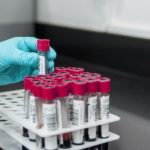What are the symptoms of menopause?
Menopause is a period of transition in a woman’s life when her menstrual cycles stop permanently and she loses her ability to produce children. It usually happens at the age of 45 to 55 years and is due to exhaustion of the reproductive cells called oocytes. It is also characterized by hormonal and psychological changes. The ovaries stop producing a significant amount of estrogen, only a minimal amount is produced. The menopause is dated as on the last period after twelve months of cessation of menses.
Menopausal syndrome
The clinical features which are associated with the occurrence of menopause are grouped together as a menopausal syndrome. They are the effects of aging and hormonal changes. The estrogens produced by ovaries reduce significantly. It is also associated with a reduction of adrenal androgens and growth hormones.
Features of estrogen deprivation – symptoms of menopause
Vasomotor symptoms – Hot flashes are one of the most common symptoms. They occur in about 75% of women. Due to declining estrogen, the thermoregulatory center in the hypothalamus is reset which results in hot flashes. There is a feeling of warmth or burning sensation over the face, neck, and chest. It may spread to the rest of the body. It occurs in cycles of a few minutes. The warmth is followed by sweating, resulting in chills due to loss of body heat. These hot flashes occur more frequently at night resulting in disturbed sleep, tiredness, irritability, and depression. These symptoms persist for one to two years and then subside gradually. In some women, these symptoms may persist for ten years.
Urinary system features – Estrogen receptors are present in high concentration in the epithelial lining of the vagina, urethra, and urinary bladder; this epithelium undergoes degeneration and becomes thin with menopause. There is dryness and burning sensation resulting in painful coitus due to decreased lubrication. There is an increased incidence of infections due to rising in vaginal alkalinity. There is also an increased risk of urinary tract infections. Incontinence or failure to hold urine is seen in many women after menopause. They develop genital itching and urgency to pass urine. It is related to the weakening of the supporting connective tissue with aging and thinning of the urethral lining.
Osteoporosis – Weakening of bones or osteoporosis after menopause is mainly due to deficiency of estrogen. It is aggravated by the associated reduction in growth hormone levels. It is seen in one-third of postmenopausal women. Increased activity of osteoclast cells results in bone resorption which is higher than the rate of bone formation. A trivial injury may result in a fracture that heals over a longer duration. The most common sites include the vertebrae in the spine and the long bones of the arms and legs. The severity of osteoporosis depends on genetic background, lifestyle, dietary habits, bone mineral density before menopause, and coexisting disease. Cigarette smoking, caffeine, and alcohol consumption are associated with increased bone loss, while weight-bearing activity and exercise prevent or reduce it.
Heart disease – The risk of heart disease in women is lower in women than men before menopause. In post-menopausal females, the risk in women is equal, though the prognosis is worse than in men. The occurrence of chest pain or rapid heart rate may herald the onset of hypertension, angina, or ischemic heart disease. These features may be aggravated by depression, anxiety, or panic attacks.
Psychosocial symptoms – Post-menopausal women develop inability to sleep, fatigue, short-term memory loss, and depression. There is also a risk of cognitive decline associated with menopause which is often characterized by emotional lability and mood disturbances.
Menopause brings in a big pause to the physiology of reproduction associated with the cessation of estrogen production. The features of menopause are physical and psychological which require careful handling. The timely advice of the gynecologist, hormone replacement therapy, and other supportive therapies go a long way in keeping life normal.




























